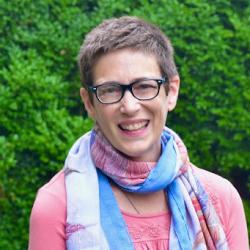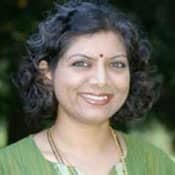Seeking shanti has been very difficult these last few weeks; the equanimity I strive for through my daily routines and rituals is akin to looking for a lake without any ripples. Like stones skimming the lake's surface, imbalance results from a parenting choice that I wasn't sure of, or something that I said that brought back a hurtful rejoinder. The actions and reactions are both mine, something I have control over; daily pranayama and meditation usually help me to center myself, to achieve the balance I seek.
But recent actions that are not mine have made such shanti elusive. The United States Commission on International Religious Freedom (USCIRF) released its annual report identifying what the U.S. finds to be the world's worst religious freedom violators. The Commissioners heard testimony from many parties, but it appears some voices are more equal than others. While Egypt was cited for the first time, India is on their watch list for the third time, alongside Afghanistan, while obvious violators such as Bangladesh and Malaysia are not. As a Hindu American, the impact of this decision as related to Hindu Indians troubles me, as it does Suhag Shukla, co-founder and Managing Director of Hindu American Foundation, and Sheetal Shah, Senior Director of HAF. The majority Hindu Indian pluralistic ethos—which gave rise to Sikhism, Buddhism, Jainism—was given less validity than the political clamor of India's detractors. My Hindu brethren, (remember, the whole world is my family?) are not free to practice and retain their religion, free from predatory proselytizing.
USCIRF is a quasi-government body, and its commissioners heard testimony from HAF, but their perspective, and their judgment, is colored by the limitations of their Abrahamic lens: the Commission doesn't have anyone representing the Eastern faiths. The decision of the commissioners seems similar to the might-is-right and religious-right mentality that tends to drive American foreign policy. Consider Commissioner Nina Shea's track record, reported by the Right Web, of using human rights to push for military intervention. The Right Web is a program of the Institute for Policy Studies (IPS) that "assesses the work of prominent organizations and individuals who promote militarist U.S. foreign and defense policies, with a special focus on the 'war on terror' and the Middle East" (as stated on its website).
While I searched for answers by reaching out to interfaith friends, for why USCIRF's understanding of India is so different from mine, a boulder dropped into the already-disturbed lake. Shanti became unattainable even through daily centering, as I watched jubilation at Osama Bin Laden's death alongside President Obama's calm statement. One can wish that the actions of the U.S. Navy Seals could be the end of the war on terror. Via email, I shared my thoughts a couple of days after the incident with Imam Elahi of the Islamic Center of America, and others of the Interfaith Council of Metropolitan Detroit:
. . . My first response to the news was, we should not feel triumphant, as one of my colleagues was feeling this morning . . . I felt very sad to hear him say, "It took us ten years, but we cut the head off the snake!"
The snake is hatred, stereotyping, and ignorance—and no, we have not cut off the head. Almost 70 percent of Americans don't know a Muslim, and make judgments about what Muslims believe. At congressional offices I have visited as part of the Hindu American Foundation, an advocacy organization that I have been on the Executive Council of since last year, one congressman asked, "Are you Shia or Sunni?"
We must do everything we are doing to continue to strive toward better understanding, a more pluralistic society, and deeper friendship through faith. My prayers are for the wellbeing of all, and hope that everyone finds an opportunity to do something meaningful and inclusive on the upcoming National Day of Prayer. We will be celebrating the 7th Annual Day of Prayer in Troy, at an event held at the Troy First United Methodist Church at 7 p.m., sponsored by the Troy-area Interfaith Group. Out of something bad, we have worked to achieve something good locally amongst our neighbors, and I believe that our efforts must continue in that direction.





